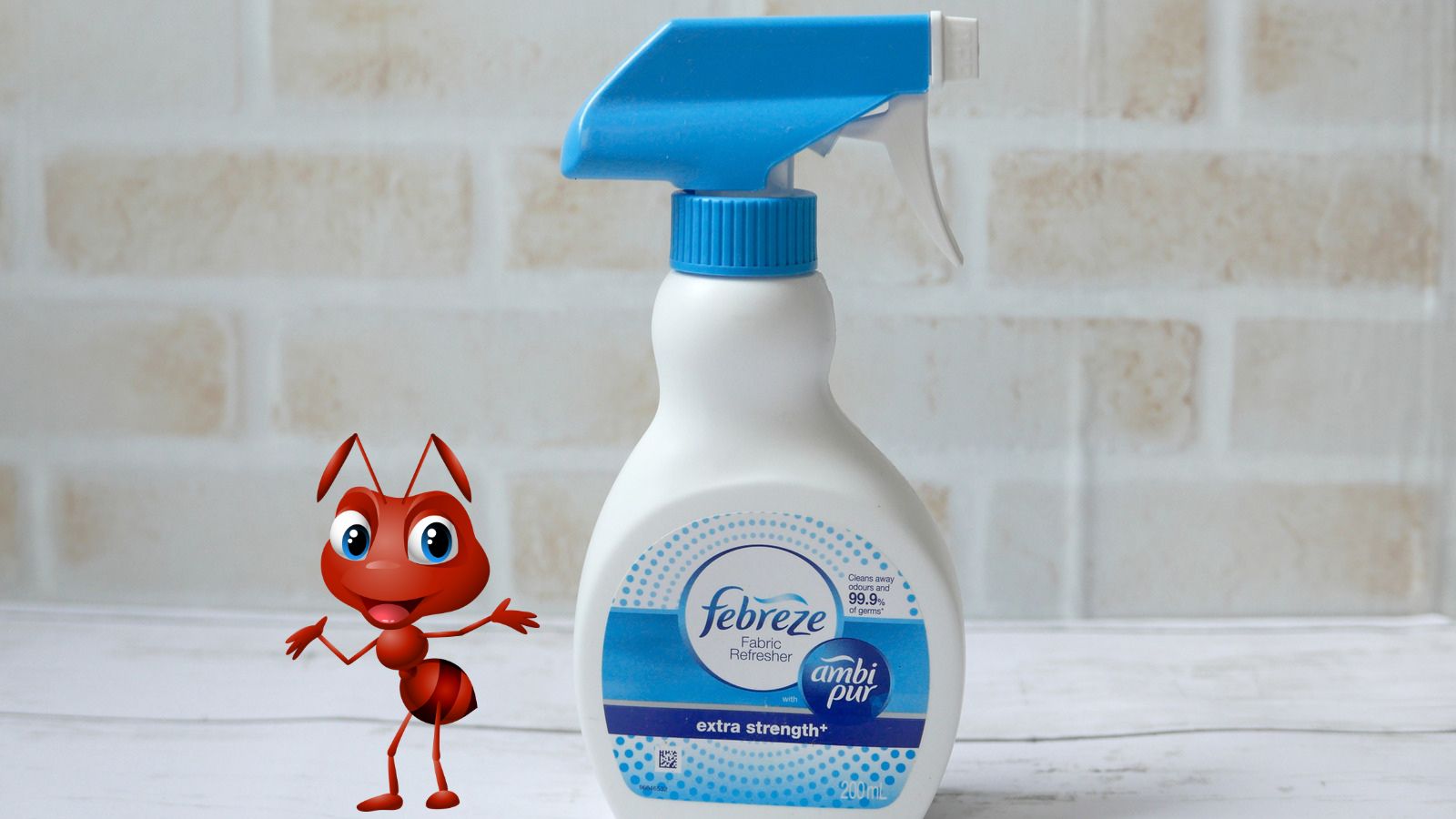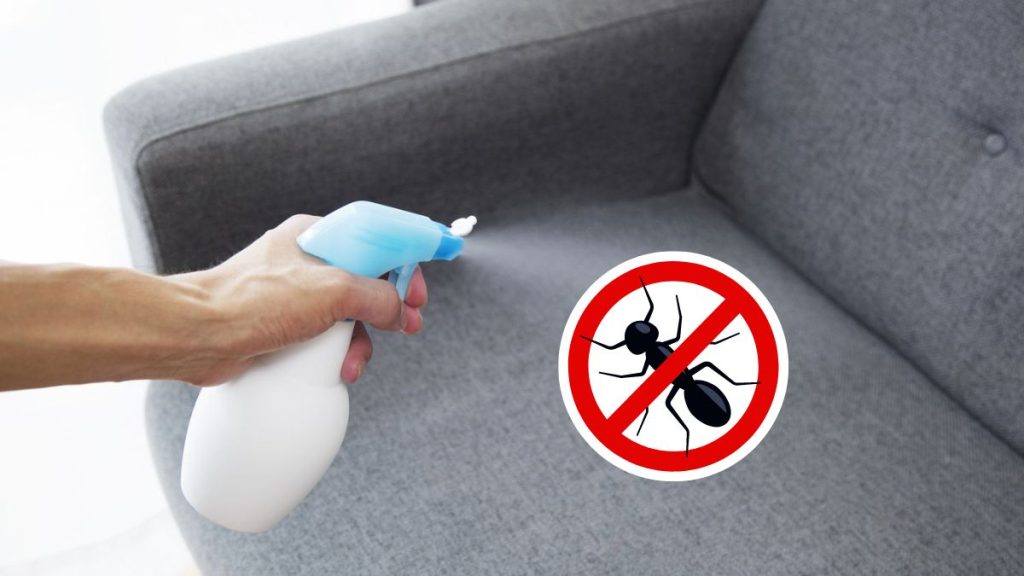Killing Ants With Febreze – Does It Actually Work?

When you were faced with an ant invasion in your kitchen, the last thing you might have reached for is your bottle of Febreze.
The well-known air freshener designed to eliminate odors and leave a pleasant scent behind, Febreze contains hydroxypropyl beta-cyclodextrin among other ingredients, which can surprisingly impact small pests.
Initially marketed for its fragrance-enhancing properties, this spray has become a staple for masking unsavory smells in homes everywhere.
But as you sprayed the feisty trail of ants, you noticed something unexpected—the ants stopped moving.
While Febreze is effective in killing ants upon contact due to certain toxic substances it harbors, it’s important to realize that as a product made for human-safe odor control, it’s not intended as a pest management tool.
If you’re contemplating using Febreze against ants, remember that it might offer a quick fix but likely won’t be your best bet for a long-term solution.
How Febreze Works
What’s Inside Febreze?
Your typical bottle of Febreze isn’t just filled with a pleasant scent.
It contains active ingredients like cyclodextrin, a sugar-like substance that’s great at trapping unwanted smells.
The inclusion of alcohol, such as ethanol, helps the product to dry quickly as it’s sprayed. Elements like limonene add that fresh, citrus fragrance.
The Science of Smell Removal
When you spritz Febreze in your space, you’re unleashing a mist that contains tiny molecules designed to encase odor molecules.
The cyclodextrin forms a ring structure that traps the smelly particles, effectively hiding them from your nose.
Unlike some air fresheners that just mask odors, Febreze works to truly eliminate the smells, making your home feel cleaner.
An Unintended Effect
While you’re using Febreze for its odor-eliminating talents, it’s interesting to know it could inadvertently affect insects.
Though not a pesticide, the chemicals in Febreze might suffocate tiny pests like ants on contact by disrupting their respiratory system.
However, this is not its intended use, and it is always crucial to handle household products responsibly and as intended by the manufacturer.
Does Febreze Kill Ants?

Immediate Effects on Ants
When you spray Febreze directly on ants, it can kill them.
The action is due to the suffocating effect it has on the ants’ exoskeleton, as well as the toxicity of the chemicals in the product.
In situations where you’re dealing with a surprise infestation, a direct spray might seem like a quick fix.
Long-Term Efficacy and Return of Ants
However, Febreze doesn’t provide a lasting solution. It lacks residual insecticide properties, which means it won’t continue to kill ants or other insects over time.
After the initial application, ants might avoid the area, but there’s a high probability they will come back once the effects wear off.
Selection of Febreze as an Insecticide
It’s important to note that while Febreze can be lethal to ants on contact, it is not a designated ant killer.
In fact, it’s primarily an air freshener with a pleasant smell, which might not always deter pests like ants.
You would achieve better long-term control with products specifically labeled to kill insects.
Better Alternatives for Ant Control
Using Baits and Sprays
Your battle against ant infestations might be more successful with ant baits and insecticide sprays.
Baits lure ants with an enticing substance combined with a slow-acting insecticide, leading to the elimination of not just individual ants but the entire colony.
When choosing sprays, opt for products specifically labeled for ant control to ensure effectiveness against the particular species invading your home, whether they be carpenter ants or fire ants.
Sealing Access Points
To keep ants from marching into your space, focus on sealing entry points.
Look for cracks in walls, gaps around doors, or any other tiny openings that ants can exploit.
By filling these in, you can thwart would-be invaders, keeping your home a fortress against these persistent pests.
Embracing Natural Remedies
For a more eco-friendly approach, turn to nature’s own repellents.
Diatomaceous earth, a powder made from fossilized algae, is sharp at a microscopic level; this can effectively fend off ants without chemicals.
Additionally, a mixture of water and vinegar can serve as a powerful repellent spray, while peppermint oil can keep your space smelling fresh and deter ant activity.
Maintaining a Clean Environment
A key tactic in ant control is cleanliness.
Regular vacuuming and wiping down surfaces can drastically reduce the scent trails ants follow, while proper food storage and disposal limit resources ants seek out.
In the long run, a clean home is less appealing to invading ants, keeping them at bay.
Integrating Control Strategies
To enhance your pest management, combine these methods for more comprehensive protection.
Balancing chemical treatments with natural solutions and preventative measures, like proper sanitation, can create an inhospitable environment for ants, ensuring your home remains peaceful and pest-free.